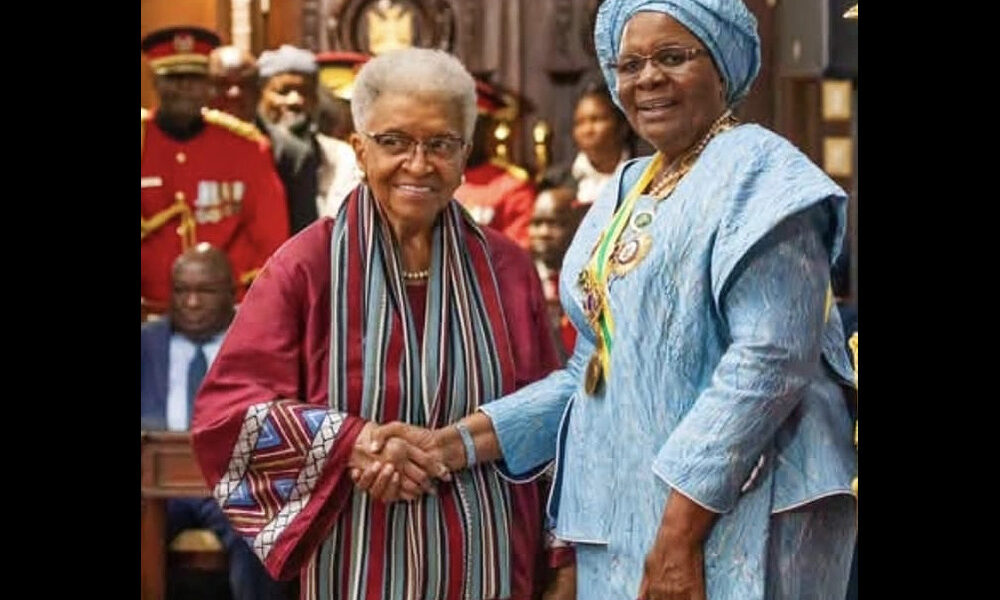From politics to business, African women are breaking barriers and redefining leadership across the continent.
JOEY P
In boardrooms, government halls, and grassroots movements, African women are asserting their place as dynamic leaders driving transformation across the continent. Once sidelined in many sectors, women are now leading some of Africa’s most impactful institutions, companies, and reforms.
As countries across the continent pursue inclusive growth and stronger democracies, the rise of women in leadership marks a significant shift in Africa’s political, economic, and social fabric.
Political Pioneers Making History
Africa has seen a notable increase in women holding high political office, challenging long-held gender norms and championing inclusive governance.
Samia Suluhu Hassan, President of Tanzania, made history in 2021 as the country’s first female head of state. Her leadership style, marked by diplomacy and reform, has won praise both locally and internationally.
In Ethiopia, Sahle-Work Zewde continues to serve as the country’s first female President, advocating for peace, education, and women’s rights. Though her role is largely ceremonial, her presence at the helm remains a powerful symbol of gender equality.
In Rwanda, where women hold more than 60% of parliamentary seats—the highest in the world—female politicians have played a key role in the country’s post-genocide recovery and development.
Business Titans Changing the Game
In the private sector, African women are proving that innovation and leadership are not confined by gender.
Ibukun Awosika, former Chairperson of First Bank of Nigeria, has long been a trailblazer in business and corporate governance. She also mentors young female entrepreneurs through initiatives like the Women in Business, Management and Public Service (WIMBIZ).
Rebecca Enonchong, a Cameroonian tech entrepreneur and founder of AppsTech, is a leading voice in Africa’s digital economy. Her advocacy for tech inclusion and startup investment has inspired a generation of women in STEM.
Meanwhile, South Africa’s Phuti Mahanyele-Dabengwa made headlines as the CEO of Naspers South Africa, overseeing one of the largest tech investment groups on the continent.
Champions of Social Change
Beyond government and business, African women are leading social movements and community development efforts.
Graça Machel, Mozambican humanitarian and widow of Nelson Mandela, has spent decades advocating for women and children’s rights. Her foundation supports gender equity, education, and health across Africa.
Nigerian activist Obiageli Ezekwesili, co-founder of Transparency International and leader of the #BringBackOurGirls campaign, has become a powerful voice for anti-corruption and education reform.
In Uganda, Stella Nyanzi, a scholar and activist, has gained global recognition for her bold stance on gender rights and freedom of expression.
Education and Mentorship: Lifting the Next Generation
Education remains a cornerstone of women’s leadership in Africa. Across the continent, initiatives led by women are helping young girls access opportunities their mothers could only dream of.
Programs such as CAMFED (Campaign for Female Education), led by Zimbabwean Angeline Murimirwa, are transforming rural education by supporting thousands of girls through school and into employment.
Meanwhile, grassroots leaders are stepping up. In Kenya, Nice Nailantei Leng’ete, a youth educator, has helped save thousands of girls from female genital mutilation through advocacy and alternative rites of passage.
Still Work to Be Done
While progress is undeniable, barriers remain. Cultural norms, legal inequalities, and lack of access to capital and education still hinder many women from reaching leadership positions.
According to the African Union, women make up only 24% of top corporate leadership across Africa and continue to face systemic challenges in both the public and private sectors.
However, as more women rise to power and more girls are given equal opportunities, the outlook is optimistic.
Conclusion
Across Africa, women are no longer waiting to be given a seat at the table—they are building their own. Their leadership is not just inspiring; it’s essential for Africa’s future. As the continent navigates rapid change, the voices, visions, and victories of African women leaders will shape its path forward.
Editor’s Note:
This feature is part of our “Voices of Africa” series, highlighting leadership, innovation, and inclusion across the continent.


Leave a Reply